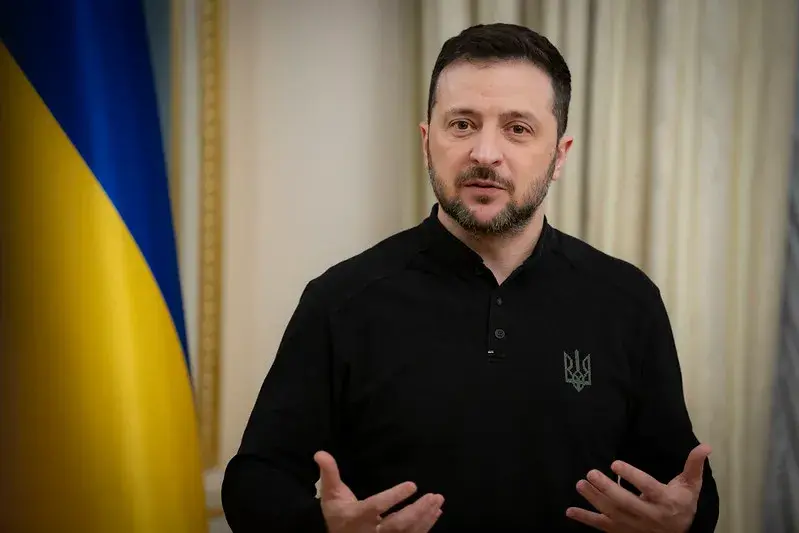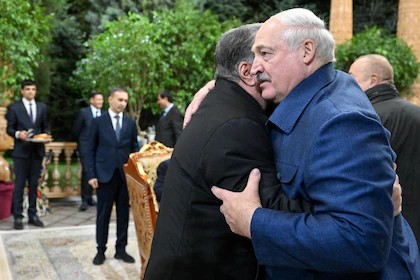France, Germany, Poland and the United Kingdom, supported by the United States, urged Russia to accept a “total and unconditional” cessation of hostilities starting Monday.

Russia announced on Saturday that it would “reflect” on the ceasefire proposal presented earlier by Ukraine’s European allies, amid mounting Western pressure for Moscow to end hostilities in the neighboring country.
“We have to reflect on it. It’s true that it’s a new idea (…) The President remains open to maintaining contact with any foreign leader,” said Kremlin spokesman Dmitry Peskov, without elaborating. He also reminded the press that “we have our own position” on the matter, referring to the unilateral three-day pause ordered by Vladimir Putin earlier this week.
“The President announced a three-day ceasefire a few days ago. Have you heard any reaction from Kyiv? No, neither have we,” he said, before dismissing threats from European partners, who warned they would impose new sanctions or take other measures if Moscow refused the initiative.
“Trying to pressure us is quite useless (…) It’s very difficult to isolate a country like Russia. It represents a significant part of the world. What we will do is strengthen our relations with countries that are interested in cooperating with us,” he added.
Earlier in the day, during a visit to Kyiv, the heads of state of Germany, France, Poland, and the United Kingdom, along with Ukrainian President Volodymyr Zelensky, held a phone call with Donald Trump and agreed to call for a one-month truce between the warring sides in order to make progress in peace negotiations.
“Ukraine and all its allies are ready for a total and unconditional ceasefire on land, air, and sea, lasting at least 30 days, starting Monday,” said Ukrainian Foreign Minister Andriy Sybiga.
During this period, French President Emmanuel Macron urged Putin and Zelensky to engage in “direct talks” to establish guidelines for a potential final peace agreement.
Unlike previous proposals, this time the allies warned that if the Kremlin delays its response or refuses to accept the initiative, pressure mechanisms will be triggered to compel its adherence.
German Chancellor Friedrich Merz stated in advance that there could be “a massive tightening of sanctions” and a “massive increase in aid to Ukraine—politically, of course, but also financially and militarily.”
“No more ‘ifs’ or ‘buts’. No more conditions or delays. Putin didn’t need conditions to call a ceasefire for a parade, and he doesn’t need them now. If he’s serious about peace, he has the opportunity to show it now by extending the Victory Day pause into a full and unconditional 30-day ceasefire, with immediate follow-up negotiations,” said British Prime Minister Keir Starmer.
European Commission President Ursula von der Leyen welcomed the announcement by the allied nations and endorsed the step, which aims to “pave the way for meaningful peace negotiations” in a war that has lasted more than three years.
Keep Independent Journalism Alive
In a world flooded with noise, independent journalism is more vital than ever. We work hard to bring you clear, accurate, and unbiased international news — free from corporate or political influence.If you believe in the power of honest reporting, please consider making a donation. Every contribution, big or small, helps us stay independent and keep the world informed.
Support us via PayPalYour support makes a difference.


